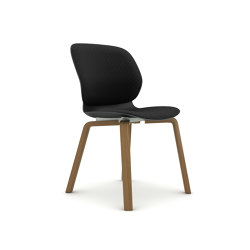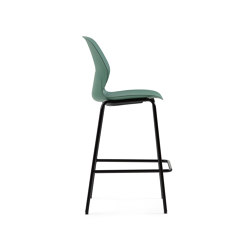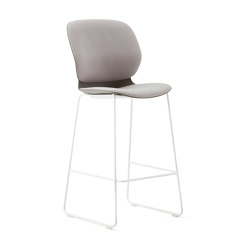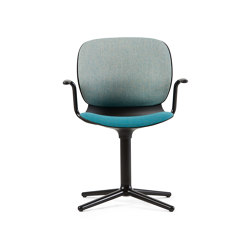Haworth: rework, repair, recycle, reuse
Brand story by Emma Moore
Holland, MI, United States
04.07.22
With a myriad of 'r' words at its disposal, global office furniture brand Haworth has taken up the challenge of developing a 100% recycled and recyclable version of its Maari chair.
The Maari chair by Haworth, launched in 2019, has had its plastic shell reworked so that it is made up of recycled, and now also recyclable, materials
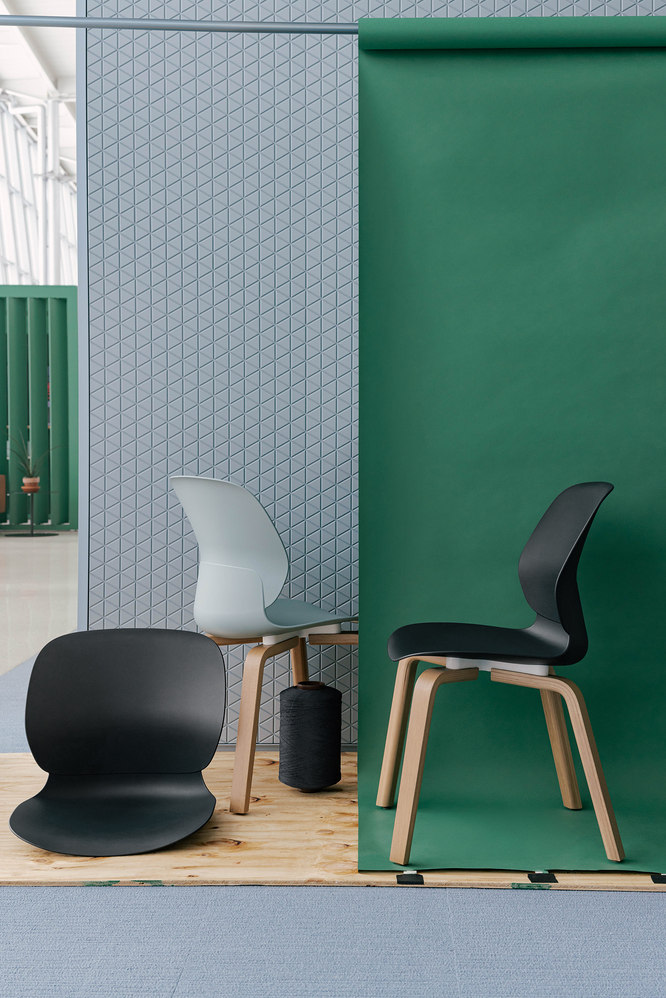
The Maari chair by Haworth, launched in 2019, has had its plastic shell reworked so that it is made up of recycled, and now also recyclable, materials
×As companies rattle their social and environmental consciences and define new goals toward the achievement of absolute circularity, the whole lexicon of furniture design and manufacture is on the move. While exploring ways to limit its impact on the world’s ecological balance to zero, the industry is mobilising a whole army of r’s: from reuse and repurpose and recycle and repair, to remanufacture and replace and, also, increasingly, rental.
Previously the plastic component of the Maari chair was 15% recycled, but now, thanks to a partnership with Bock, a German manufacturer, it is 100% recycled
Reworking of parts
One brand that has taken on the whole gamut of r’s is the US office furniture specialist with manufacturing outposts in Europe and Asia, Haworth. Recently, for example, the family of Maari chairs, designed for Haworth by Patricia Urquiola and launched in 2019 has been materially rethought. The chair is an important part of the collection, with its fresh, essential form, and versions that range from a desk model, to guest and dining models.
We cannot approach any of the raw materials the way we approached them before
In 2021, Urquiola challenged the brand to produce a 100% recycled and recyclable version of the plastic moulded shell using local supply chains in Europe. ‘We cannot approach any of the raw materials the way we approached them before,’ says Urquiola, who like many high-ranking international designers, has adapted her role to include advanced material research to further the circular mission from the drawing board stage. ‘We need to change our mindset toward a sustainable perspective.’ With a 100% circularity target set for 2025, Haworth willingly accepted the challenge.
The designer of the Maari chair, Patricia Urquiola is committed to evolving product, as and when it becomes possible, so that the materials and processes are as circular as possible

The designer of the Maari chair, Patricia Urquiola is committed to evolving product, as and when it becomes possible, so that the materials and processes are as circular as possible
×Recycling waste
Increasing the recycled content of Maari’s one-piece shell while retaining its essential characteristics of strength and elasticity turned out to be far from straightforward, but it was achieved in collaboration with a component manufacturer in Germany, Bock, who re-processes its waste materials and returns them to the system. Previously, the recycled content for the shell in the European market was 15%, but from autumn 2022 it will be available with a 100% recycled – and recyclable – shell.
Waste is not trash but a precious resource, an opportunity rather than a challenge
In addition to the plain shell, Maari is available as a padded version which comes upholstered in one of two recycled yarns: Seaqual, which contains 10% marine plastic and 90% post-consumer PET from land sources, and Oceanic fabric, created entirely from recycled plastic – 26 bottles per metre – a percentage of which was ocean-bound plastic. ‘Waste is not trash but a precious resource, an opportunity rather than a challenge.’ says Urquiola.
Upgrading designs to more sustainable materials is one part of the equation; committing to repair and rental, alongside reduced packaging are also part of the circular picture
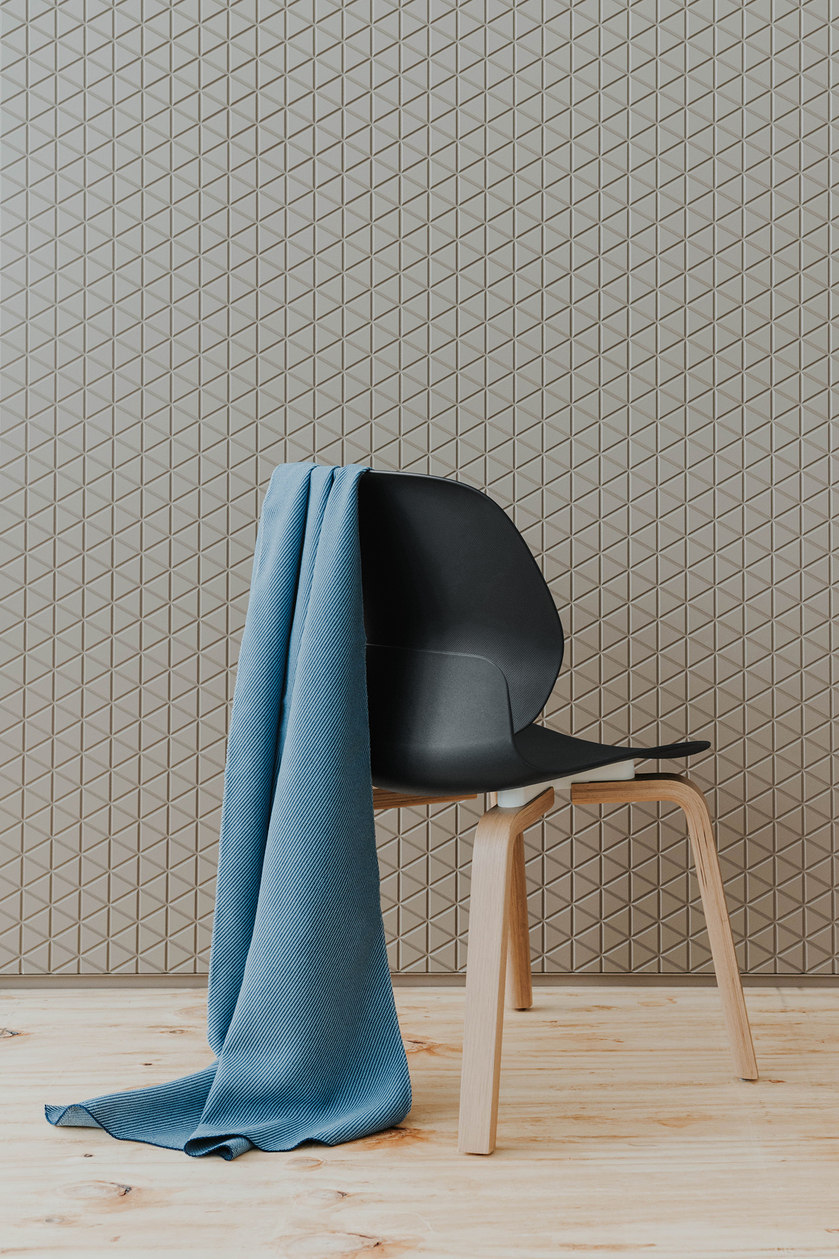
Upgrading designs to more sustainable materials is one part of the equation; committing to repair and rental, alongside reduced packaging are also part of the circular picture
×Repair and reuse
Making the switch to full circularity is no small undertaking and besides rethinking, reworking and reduction of materials (including those related to the packaging of big pieces for shipping), there are many other ‘r’s at play in achieving it. Repair is entering the fray at a commercial level, while furniture rental is a fairly nascent solution to waste – the latter has sometimes been faulted for being quick to discard furniture items at the end of a punishing lease with little regard to environmental impact at this end, but this is starting to be redressed with the repairing and recycling of parts.
These are all schemes very much in Haworth’s sights as they seek to meet their 2025 target. In the past few years, Haworth Commercial Interiors has been among those trying out product rentals, while repair programmes are proliferating. When making over its own plant in Shanghai, for example, Haworth saw that the 10-year-old furniture was refurbished rather than replaced. This entailed reupholstering and repainting the Zody task chairs and workstations being upgraded to height-adjustable models.
Maari comes in a variety of models, including upholstered versions featuring fabrics such as the Oceanic fabric, created entirely from recycled plastics, some of which would have been ocean-bound
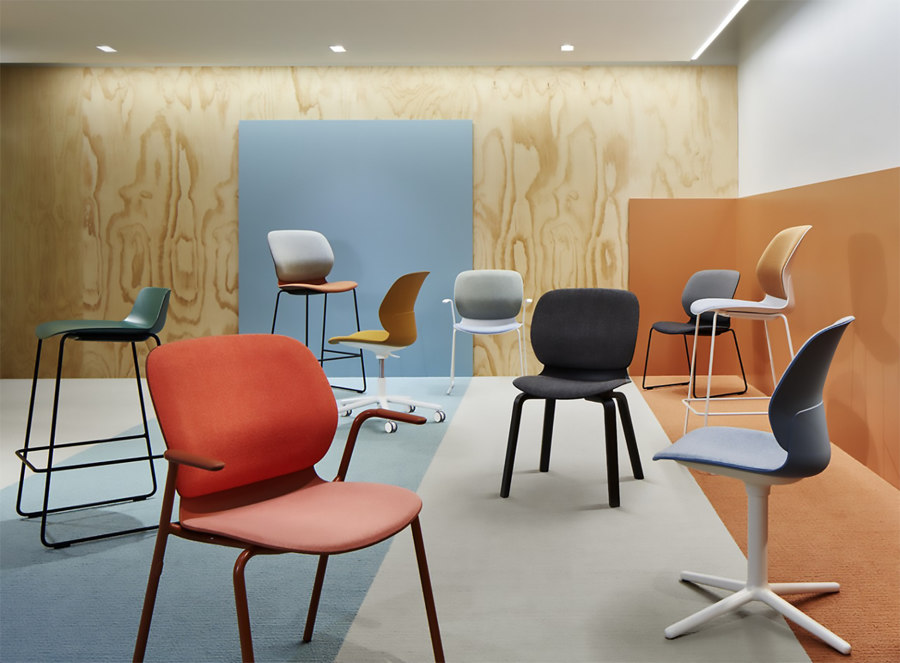
Maari comes in a variety of models, including upholstered versions featuring fabrics such as the Oceanic fabric, created entirely from recycled plastics, some of which would have been ocean-bound
×Partnering for success
Much of the mission for full circularity involves partnering with others who can facilitate the rework, repair, recycle, reuse journey. A collaboration in France initiated in 2021 with Label Emmaüs, a cooperative for eco-responsible e-commerce, sees Haworth’s reconditioned Zody chairs being given a second life and there are plans to grow this service to include more products. It works, meanwhile, with Commercial Interior brand AIS, which is partnering with ANEW to donate used furniture products to schools and charitable organisations.
It is well known that the furniture industry has historically had a high impact on the environment, and it will take all manufacturing companies engaging on all these levels to make a difference – and thankfully, there is now a real urgency among many in the industry to do so.
© Architonic


